Last year in May, I picked up a large box covered in black tape from Queens Pads PNG here in Goroka. The content of this box was 300 reusable sanitary pads.
Reusable sanitary pads are basically reusable as opposed to the disposable one time use sanitary pads currently dominating the feminine hygiene market. In Papua New Guinea; a social enterprise,Queens Pads PNG ,makes, sells and advocates for period Poverty in rural areas. Kwila Coffee got in touch with Queenspads and purchased 300 reusable sanitary pads,as part of their social impact project to help women in coffee communities in Papua New Guinea.
This was during the on and off COVID lockdown coupled with my itinerary to travel was pretty difficult to get it to Marawaka so the delay ensued till this year when I travelled to Marawaka in April.
Initially whilst I was grateful for the box to support our social programs in the Marawaka community, it really didn't dawn on me the magnitude of what this box contained meant to young girls and women esp in terms of personal hygiene.
On arrival at my hosts house, I sat with the close group of lead women farmers I worked with exchanging pleasantries and catching up with events in their lives. In turn, they inquired about the content of the inconspicuous, big black box which weighed about 11kg, that they had voluntarily carried from the airstrip.
Since in the presence of our male farmers too,I responded that it was 'samting blo ol mama na yangpela meri', trying to be careful about the wording of my sentence so as to not offend men within the periphery. I have found through observation and interaction that people in rural settings are more sensitive to off hand comments esp when it comes to taboo subjects and women's sexual reproductive health, hygiene and rights .
I asked these lead group to organize at most 60 women through our farmers with their daughters to come get these free reusable sanitary pads. In my ignorance I had decided that 5 pads per woman was good number to distribute. Up until then I was acting on the assumption that firstly; most women knew what a sanitary pad was and secondly ; that women here even if it was in a rural setting knew how to use reusable sanitary pads let alone disposable ones.
Little did I know that my line of thinking was from a place of access, where women had access to all sorts of feminine health products and excess and could be sourced anytime by urban women who could at least afford it.
The idea of period poverty or that there was a real need of feminine hygiene products and that there was a lack of access to sanitary products because of the financial constraints faced here, and feminine hygiene products were not being available in remote places didn't cross my mind.
Nor did it occur to me that this had negatively affected a range of life events in a girl or woman's life and has left women ashamed of an intimate and recurring event in her life.
The limited income that she faces everyday from leading an agrarian life has pushed her to choose between buying oil, salt, soap etc, clothes, access to health care and education for her family or her own health hygiene which quickly becomes secondary and loses priority.
That Saturday, there was a shower all morning, the day was gloomy, slowly women came and gathered at my hosts' area. By the time the showers had subsided, one by one and in small groups women came . At first there were about 28 women I gave them four reusable sanitary pads each assuming that they knew how to use them.
Then one of them asked me if I could ask them how this is used, and I responded 'oh these are like the sanitary pads that are sold in the shops in Goroka'.
At this I realized most of them responded with a blank stare, and then the epiphany occured, that most of them had if at all any idea of what it was. They stood around me in a group as I started explaining the directions on the packets of the reusable sanitary pads. Whilst through my social enterprise, I had done work with women in rural communities with PAP SMEARS, it didn't dawn on me that in some communities the problem was just basic feminine hygiene. It shook me.
So, I encouraged them to ask questions and to their credit they asked alot of questions and the light in their eyes appeared by the end of our chat as did mine, as I tried to understand their struggle with Period poverty.
Then as word spread more women came and we gave them three pads each. We distributed to 82 women in that afternoon. All of the 300 reusable sanitary pads were free donation, I explained it was through our connection in coffee with partners, Kwila Coffee based in Australia. They couldn't believe that people from so far to them would do this for them, care for something so intimate to them.
At the end of the day, all the pads had finished but the women and young girls kept on coming to inquire about the availability of any .By then my response had become standardized to the small groups on awareness about feminine hygiene health had naturally took forefront.
When asked what they used most of them used traditional materials such soft bark of a tree or certain type of leaf and old cloth. Most of them had never used disposable pads or tampons.
There was a big group of young girls who attended the local primary school, Marawaka Primary school like many rural schools in Papua New Guinea and the developing world, they had insufficient toilets and inadequate privacy measures in schools, as well as poor water, sanitation and hygiene infrastructure, making it difficult for students to safely manage their menstrual cycle.
According to UNICEF, 1 out of every 10 menstruating youth misses school during their menstrual cycle due to lack of access to menstrual products resources.
Over the lifetime of a woman who menstruates, they could easily spend three to eight years menstruating. For a young girl in school in rural PNG, lack of access to feminine hygiene products could mean she misses a week of school each month as much as eight weeks a school year resulting in most cases falling behind classes and even being shamed as she stains school desks and clothes, this is demoralizing for alot of them.
This was very real for students here, that it had become such an issue in school that the Headmaster had brought up a couple of times and needed parents involvement to work out solutions as to how to address it as a lot of girls were missing school and eventually leaving school.
In the Oburra Wonenara district where Marawaka is, the literacy rate for women is about 31% most of who have spent at least a year or two in primary level education.(NARI 2012) Period poverty too may have contributed to this low literacy rate.
By the evening we had droves of women coming to the house asking if we had more pads available. We collected more names of women and young girls in all the ward councils as groups came enlisting interest in this product. Up until the time I left which was a week after, I'd collated names of 625 women and young girls.
Some keys to ending period poverty include normalizing menstruation through science-based, age-appropriate education at school, home, and in the community, increasing efforts to get period management supplies in the hands of those that need them most, and continuing to challenge current laws that impart unfair and. - UNFPA
Why ? reusable sanitary pads are appropriate here was because it's could last for as long as 5 years and has greater absorptive qualities compared to disposable ones. Ideally menstrual products must also be safe, effective and acceptable to the women and girls, who must also be educated in how to use these products . As it is reusable, waste management is not really an issue and disposal of it means it can organically decompose within the the 1st to at most 10 years compared to the 800-900 years of single use disposable sanitary pads.
A couple of days later, word had spread all around this rural outpost to the remote villages, women trekking to inquire about free sanitary pads. Then it hit me, if this was a big issue here in Marawaka, what about women and young girls in other rural places in the next substation; district; in the next province? What of the young girls and women faced with Period Poverty, silently every month? How could I do more?
It is a mammoth task but something that in today's world of the conscious consumer is achievable through transparency and accountability. No situation is helpless there is always a way out, to help women and young girls in remote Papua New Guinea regardless of the many, many challenges.

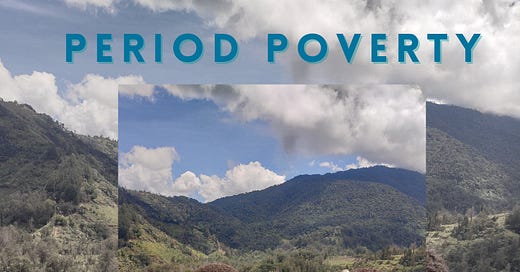



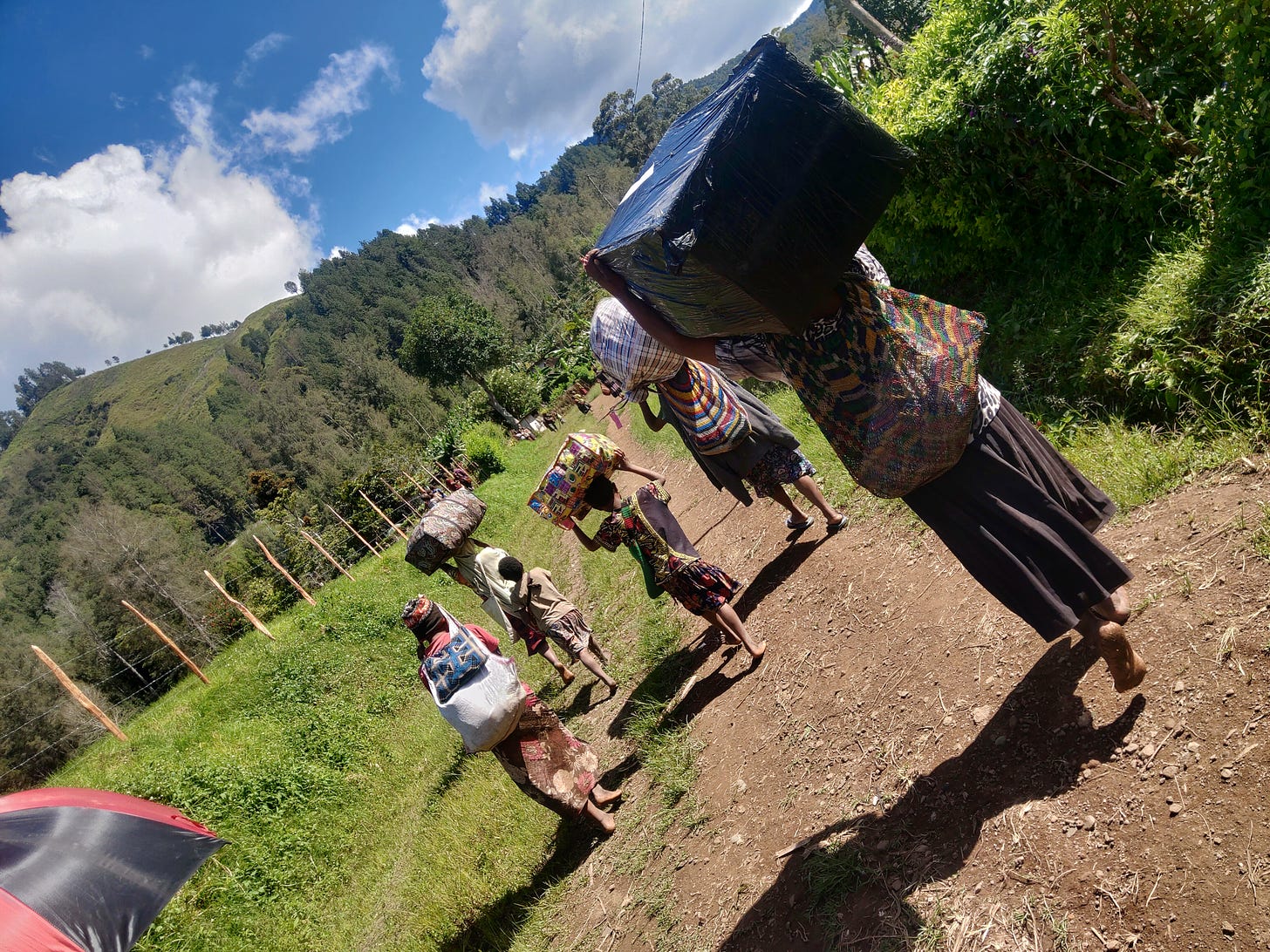
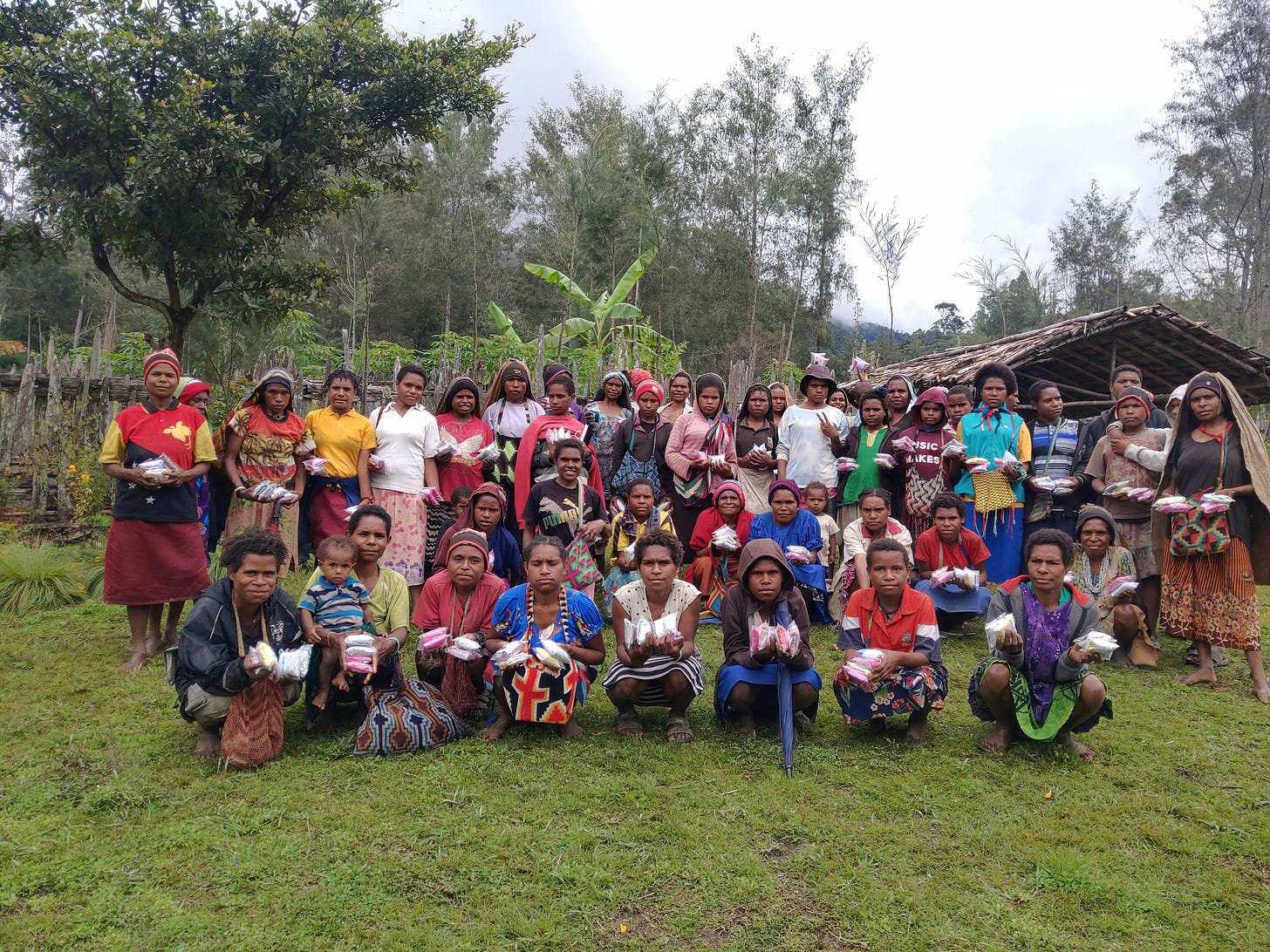
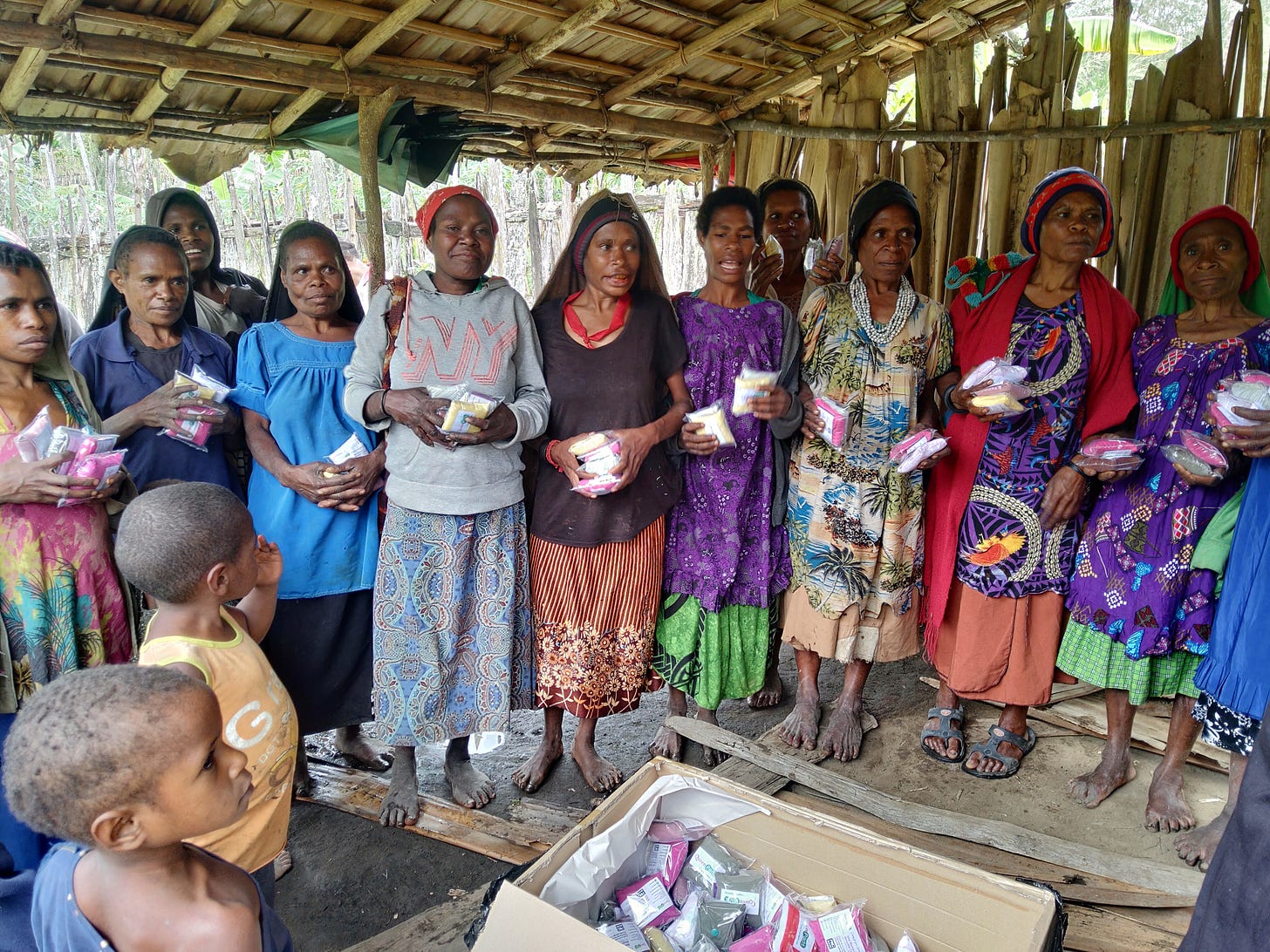
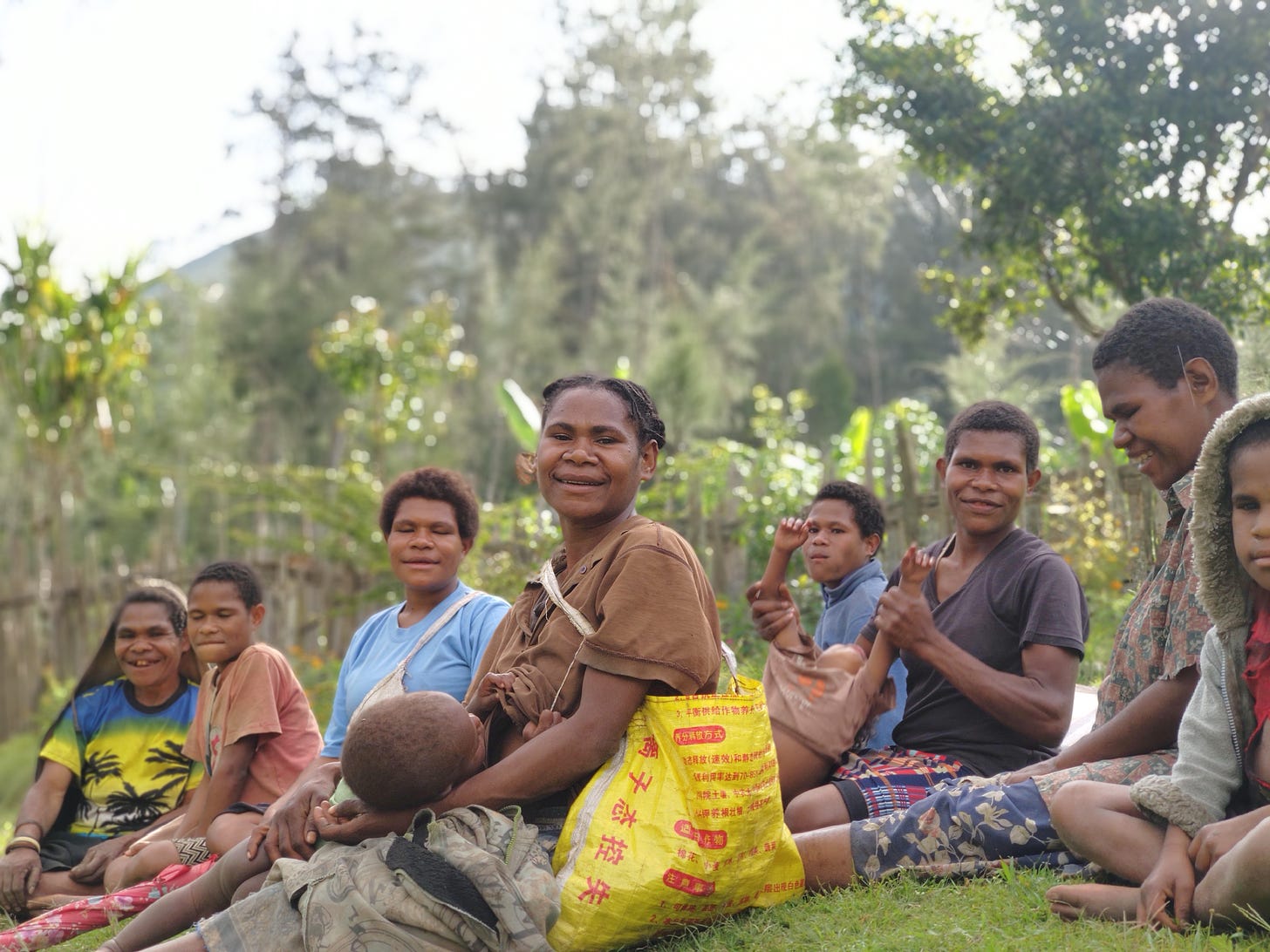
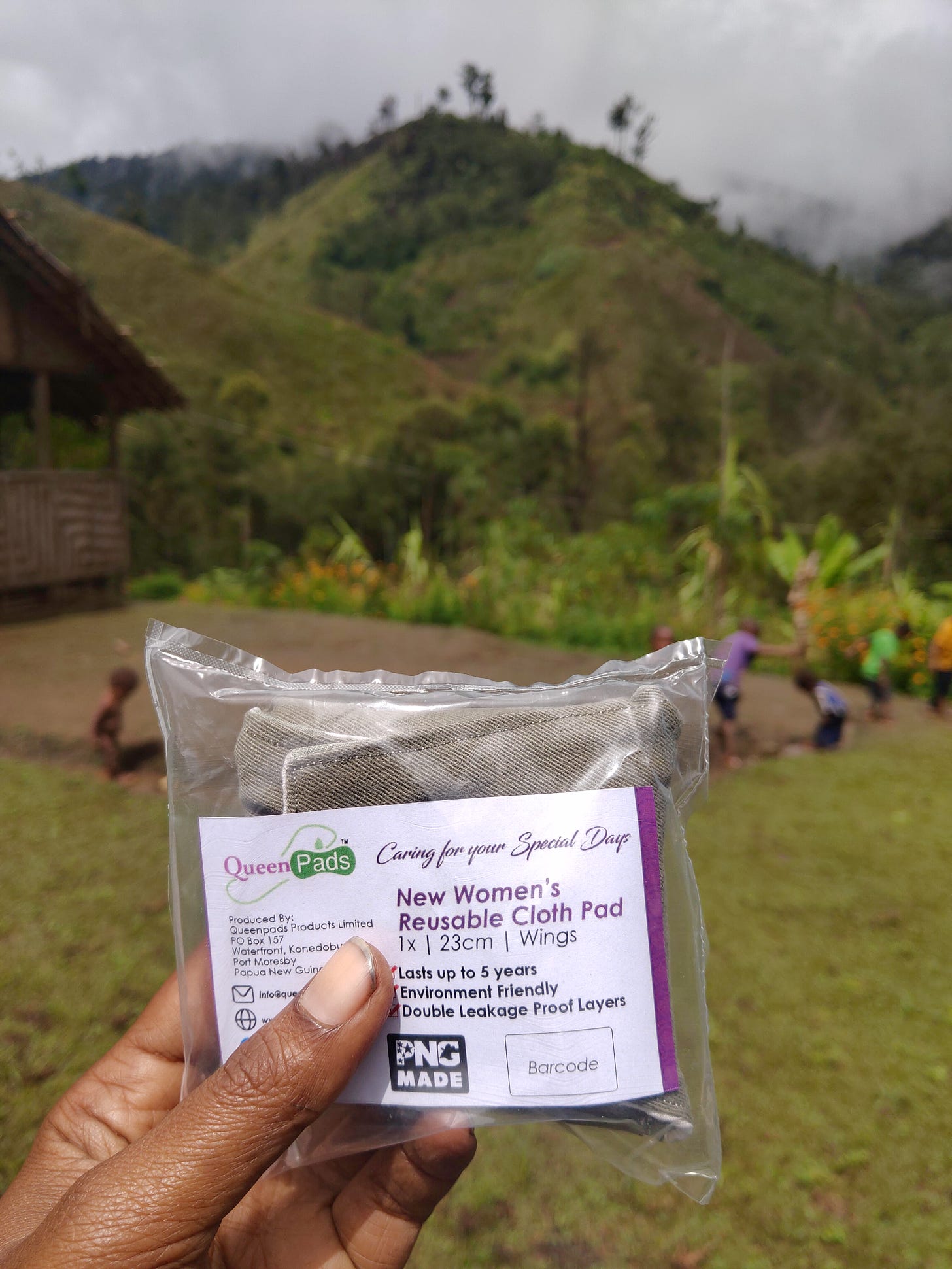
Great job Priscilla. So hard when you can’t meet the need of every woman who came to visit. X Alex
Such a great story shared. Thank you. There's so much we can do together! Thank you for been the key person on the ground. Queenpads will be in touch to discuss possible future support for the 600+ Queens in Marawaka.